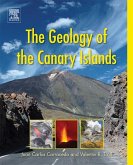Through a combination of geological surveys, satellite imagery, and field research spanning five continents, the work presents compelling evidence of how volcanic activity serves as a fundamental driver of ecological diversity. The text progresses logically from basic volcanic processes to complex ecological interactions, expertly weaving together three main themes: immediate ecosystem disruption following eruptions, long-term benefits for biodiversity, and the intricate relationships between volcanic systems and climate patterns.
Drawing from extensive research by the United States Geological Survey and international institutions, the book examines fascinating case studies of significant eruptions and their ecological consequences. Readers gain insights into how different species adapt to volcanic environments, particularly in the Pacific Ring of Fire region, where some of the most dramatic examples of volcanic-influenced ecosystems exist.
This comprehensive work stands out for its innovative approach, combining traditional geological data with cutting-edge remote sensing technology and DNA analysis of volcanic soil microorganisms. While maintaining scientific rigor, the book presents complex concepts in an accessible manner, making it valuable for both academic researchers and educated general readers. The integration of soil fertility studies, climate pattern analysis, and species adaptation research provides a holistic understanding of how volcanic activity contributes to Earth's dynamic ecological systems.
Dieser Download kann aus rechtlichen Gründen nur mit Rechnungsadresse in A, B, BG, CY, CZ, D, DK, EW, E, FIN, F, GR, H, IRL, I, LT, L, LR, M, NL, PL, P, R, S, SLO, SK ausgeliefert werden.









